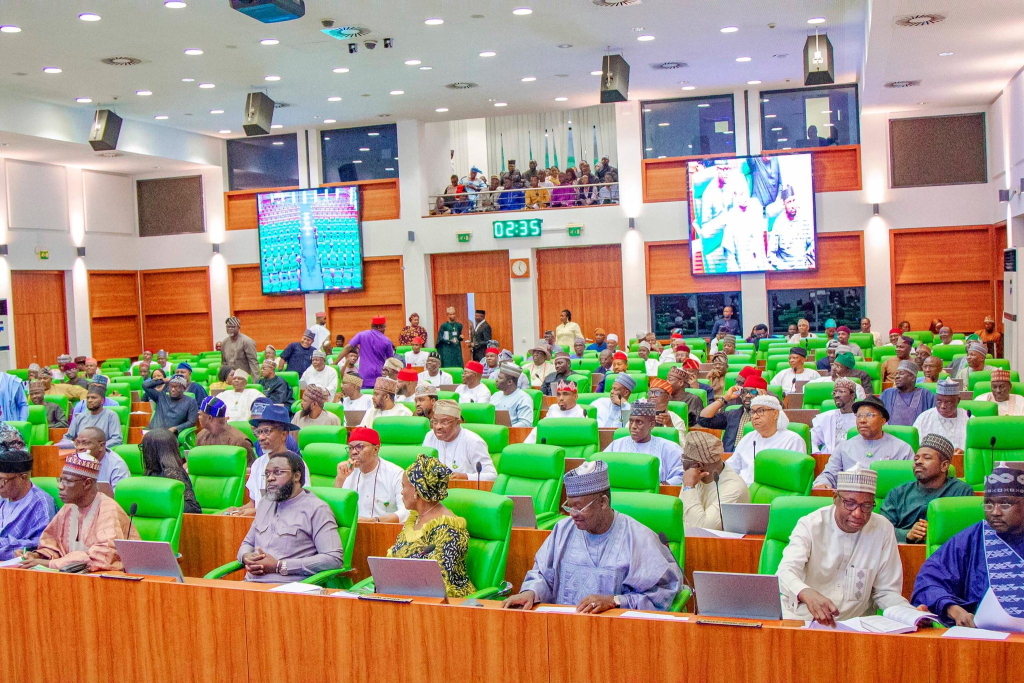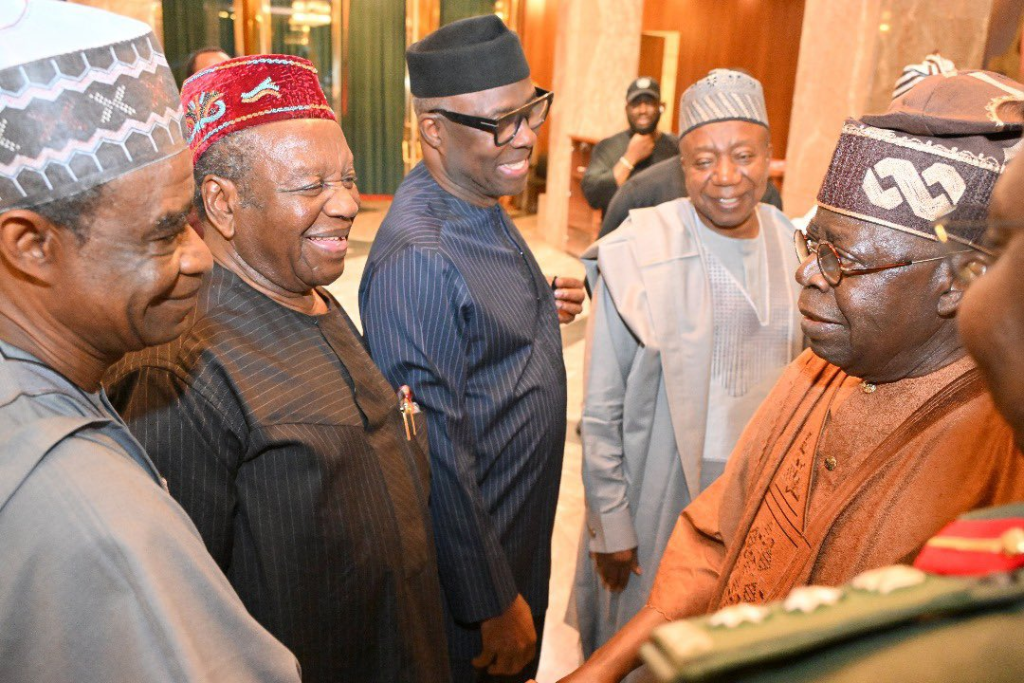
Constitution Review: Despite loud agitations, 46 proposed states fail five key criteria,
•N /Central tops list with 12 proposals, S/East, N/East at the bottom with six each
By Gift Chapi-Odekina
As Nigeria inches closer to yet another round of constitutional amendments, one of the most politically sensitive issues dominating the agenda is the renewed agitation for the creation of new states.
From the dense mangroves of the Niger Delta to the arid plains of the North-East, groups and communities are lobbying hard to redraw Nigeria’s political map.
The House of Representatives Committee on Constitution Review, chaired by the Deputy Speaker, Hon. Benjamin Kalu, has officially received 46 memoranda requesting the creation of new states, alongside 117 proposals for new local government areas (LGAs).
This wave of demands is both unprecedented in scope and indicative of deep-rooted grievances—ranging from perceived marginalisation to demands for equitable development and political representation.
Nation-Wide Push: Geopolitical Breakdown
Despite ideological differences across regions, the desire for new states appears to be one of the few issues that unite Nigerians in aspiration.
According to data made available by the committee, the distribution of state creation requests cuts across the six geopolitical zones. “Clearly, North-Central tops the chart with 12 demands.
The region’s multi-ethnic composition, combined with a history of perceived marginalisation of minority groups (especially in states like Kogi, Benue, and Plateau), has driven this strong agitation. The South-West follows with eight requests, mainly focused on cultural revival and economic decentralisation.
Conversely, the South-East, which has long lamented its underrepresentation in Nigeria’s political equation (having only five states compared to six or seven in other regions), and North-East have made six submissions.
Though the number is comparatively smaller, the region’s agitation is politically loaded and historically significant.
Why Nigerians Want New States
The motivations behind these demands are multi-layered:
Political Marginalisation: Many minority ethnic groups feel overshadowed by dominant groups within their states. For instance, the people of Okun (Kogi West) have consistently argued that their interests are sidelined in the state’s affairs, which they say are largely dictated from Kogi Central.
Economic Accessibility: Advocates for new states argue that the current configuration makes governance inaccessible, particularly in states where rural communities are far removed from their capital cities.
Cultural Identity: Regions like Ijebu (Ogun State) and Adada (Enugu State) cite cultural autonomy and the need to preserve their historical heritage as core reasons for seeking separation.
Administrative Efficiency: Proponents believe that smaller, more manageable states can foster local development and improve public service delivery.
However, critics view the clamour as a veiled attempt to expand political patronage networks, increase federal allocation recipients, and create more positions for political elites rather than the average citizen.
The Constitutional Wall: Section 8 of the 1999 Constitution
While the calls may be loud, the reality is sobering.
According to Section 8 of the 1999 Constitution, the creation of a new state must meet five near-impossible checklists:
- Endorsement by two-thirds of elected representatives (senators and House members) from the affected areas.
- Two-thirds approval from the State House(s) of Assembly and the Local Government Councils involved.
- A referendum backed by two-thirds of registered voters in the area.
- Simple majority approval by a majority of all states in Nigeria.
- Two-thirds majority support from both chambers of the National Assembly.
Despite being given extended deadlines, none of the 46 current proposals has fulfilled these constitutional requirements, as confirmed by Deputy Speaker Benjamin Kalu during a session with civil society and the media.
Many proposals failed to attach the necessary legislative signatures, others lacked detailed maps, and almost none has documented voter or referendum support.
In essence, zero proposals are presently eligible for serious legislative processing.
Between Politics and Reality
While the legislative framework is rigid, the politics of state creation are fluid. Historically, all 36 states in Nigeria have been created by military Decree—42 out of the current 36 states were created without referenda or legislative hurdles. The 1996 exercise under Gen. Sani Abacha remains the last time new states were added.
Given that precedent, many Nigerians believe only a strong political consensus—possibly driven by a future national conference or restructuring deal—can unlock any realistic pathway for new state creation.
For now, the Constitution offers a democratic route, but one fraught with complexities.
The calls, which have gained traction through memoranda submitted to the House Committee on Constitution Review, are seen by proponents as a response to long-standing marginalisation and underrepresentation. However, critics warn of the economic burden, political complexities, and further fragmentation of the federation.
‘North-Central Leads
According to Kalu, the North-Central has submitted the highest number of state creation proposals.
“We are receiving numerous submissions, and each will be evaluated on constitutional merit, economic viability, historical relevance, and administrative necessity. The process will not be sentimental,” he stated.
Diverse Voices from the Green Chamber
Hon. Obi Aguocha (LP, Abia) strongly backed the creation of Aba State, arguing it is long overdue, considering the population density and economic importance of the zone.
“Aba generates substantial revenue for Abia and Nigeria. It deserves its own statehood. Our people are industrious but have suffered neglect due to inadequate administrative attention,” he said.
From the North-East, Hon. Usman Zanna (APC, Borno) supported the proposed Savannah State, carved out of Southern Borno.
“It’s about accessibility and inclusion. The terrain in Southern Borno makes governance difficult. A new state will bridge that gap and bring federal presence closer to the people,” Zanna said.
Hon. Yusuf Gagdi (APC, Plateau) expressed caution, saying political pressures must not override constitutional rigor.
“There’s a process. It is not about who shouts the loudest. Each proposal must pass through the constitutional eye of the needle, or it won’t stand,” he noted.
Scepticism over Feasibility
Hon. Sada Soli (APC, Katsina) and Hon. Oluwole Oke (PDP, Osun) voiced reservations.
Soli warned of overstretching the nation’s financial resources:
“We are barely funding the existing 36 states. Adding more could increase overhead without increasing value,” he said.
Hon. Oke echoed similar sentiments, calling instead for fiscal federalism and resource control.
“Instead of adding new states, let us restructure. Empower the existing ones to drive development,” he said.
Support from South-South and Middle Belt
From the South-South, Hon. Fred Agbedi (PDP, Bayelsa) expressed support for Oil River State, to be carved from the Ijaw-speaking communities across Bayelsa, Rivers, and Delta States.
“It will address historical injustices and give the Ijaw people their long-denied sense of identity and administrative autonomy,” he said.
From the North-West, Hon. Kabiru Alhassan Rurum (NNPP, Kano) supported Tiga State, a proposed new state to ease governance burden in Kano.
“Kano is too large. Splitting it will improve development, just as Jigawa was carved out in 1991,” he argued.
The Cost Question: Can Nigeria Afford More States?
One of the most pressing concerns surrounding the agitation is financial. Nigeria currently spends over 70% of its annual budget on recurrent expenditure—salaries, overheads, and administrative costs. Critics argue that creating more states would mean:
•More governors, commissioners, legislators, and civil servants.
•Increased demand on federal revenue allocations.
•Deeper duplication of bureaucracy.
In a country already grappling with debt, inflation, and subsidy removal consequences, many believe that new states could worsen fiscal instability.
However, supporters counter that existing states are not economically viable either, and that development is driven by governance quality—not geography.
They cite smaller nations and subnational regions worldwide that thrive with fewer resources but stronger accountability mechanisms.
What Next?
The House of Representatives Constitution Review Committee is expected to conclude its initial review process later this year, after which proposals that meet criteria (if any) will move to the next legislative stage. However, given that none of the proposals currently meets the requirements, the chances of any new state emerging in the short term are slim.
Still, the agitation sends a clear signal: many Nigerians want change.
Whether through the creation of new states or broader constitutional restructuring, the message is that the current structure is not delivering equitable development or representation.
The push for new states represents both a symptom and a signal—a symptom of dissatisfaction with Nigeria’s federal structure, and a signal that reform is overdue.
While no new state may emerge from this current exercise, the growing agitation could eventually compel a broader restructuring conversation—one that Nigeria can no longer afford to ignore.
The post Constitution Review: Despite loud agitations, 46 proposed states fail five key criteria appeared first on Vanguard News.
,
“There’s a process. It is not about who shouts the loudest. Each proposal must pass through the constitutional eye of the needle, or it won’t stand,”
The post Constitution Review: Despite loud agitations, 46 proposed states fail five key criteria appeared first on Vanguard News.
, , Idowu Bankole, {authorlink},, , Vanguard News, July 27, 2025, 2:34 am










